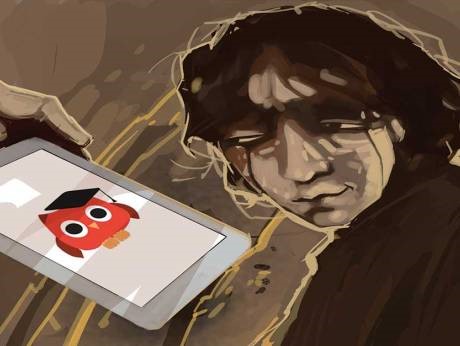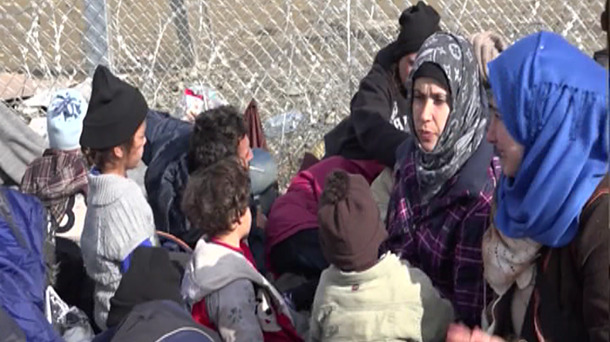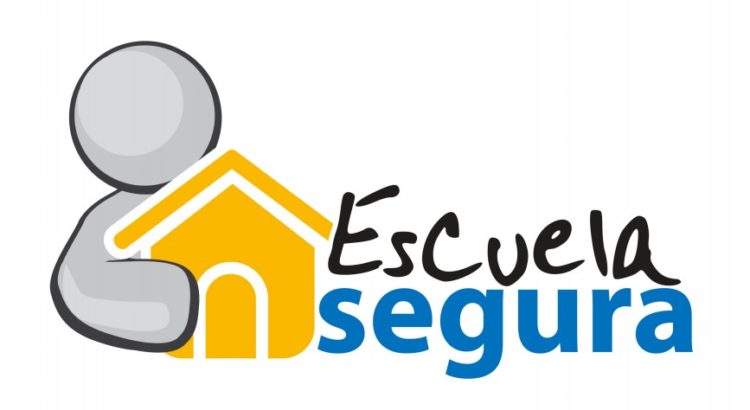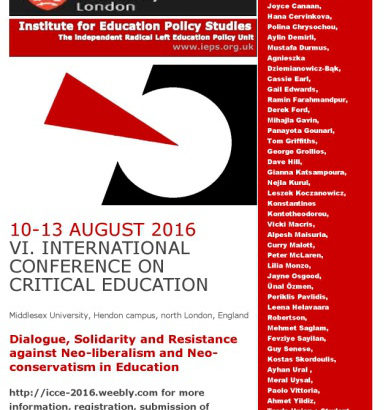La educación de los niños en situaciones de crisis no puede esperar
23 mayo 2016/ Autor: Gordon Brown, Special to Gulf News/ Fuente: http://education.einnews.com/
When disaster strikes, what can only be described as a begging bowl is handed around the world’s donor community — but a humanitarian fund for education in emergencies is about to be established
“Recall the face of the poorest and weakest man you have seen, and ask yourself if this step you contemplate is going to be any use to him.” These words, spoken by Mahatma Gandhi in 1948, should be taken as a test of our sincerity, and as a challenge to our complacency, when considering the fate of the 30 million children displaced from their homes by civil wars and natural disasters.
More boys and girls have been uprooted by crisis than at any time since 1945. They are likely to spend their school-age years without entering a classroom, their talents undeveloped and their potential unlocked. There are now 75 million young people whose education has been interrupted by conflict and crisis. Yet urgency — and international law, which mandates the education of all displaced children — fails to inspire action.
Displaced children are more likely to become the youngest labourers in the factory, the youngest brides at the altar, and the youngest soldiers in the trench. Without opportunity, children are vulnerable to extremists and radicalisation. Every year, close to a half a million girls are trafficked and vanish.
————————————————————————————————————-
“Recordemos la cara del hombre más pobre y débil que ha visto, y se pregunta si este paso contemplas va a ser ninguna utilidad para él. » Estas palabras, pronunciadas por Mahatma Gandhi en 1948, deben ser tomado como una prueba de nuestra sinceridad, y como un desafío a nuestra complacencia, al considerar el destino de los 30 millones de niños desplazados de sus hogares por guerras civiles y desastres naturales.
Más niños y niñas han sido desplazados por la crisis que en cualquier momento desde 1945. Es probable que pasar sus últimos años en edad escolar, sin entrar en una sala de clase, su talento y su potencial no pueda ser desarrollado. En la actualidad hay 75 millones de jóvenes cuya educación ha sido interrumpida por el conflicto y crisis. Sin embargo, la urgencia – y el derecho internacional, que obliga a la educación de todos los niños desplazados – dejan de inspirar la acción.
Los niños desplazados son más propensos a convertirse en los trabajadores más jóvenes de la fábrica, las novias más jóvenes en el altar, y los soldados más jóvenes de la zanja. Sin oportunidad, los niños son vulnerables a los extremistas y la radicalización. Cada año, cerca de medio millón de niñas son objeto de trata y se desvanecen.
—————————————————————————————————————-
The fate of these dispossessed is tethered to the thinnest of lifelines. When disaster strikes, what can only be described as a begging bowl is handed around the world’s donor community. Voluntary contributions are then administered by refugee agencies, charities, and NGOs, which heroically help refugees scrape by with the bare essentials — food, water, shelter, and protection.
In such circumstances, the right to education becomes an unaffordable “luxury”. While UN Peacekeepers are funded by assessed contributions levied on member countries, the millions of children displaced by crises have no guarantee that anyone will fund their schooling. Indeed, less than 2 per cent of humanitarian aid reaches education. Syria’s civil war, now entering its sixth year, and the first anniversary of Nepal’s devastating earthquake — two disasters that have forced millions more children into the streets — serve as painful reminders that we lack the means to return children to the classroom in the wake of such tragedies. A permanent fund securing education for children in emergency situations is long overdue. Instead of wasting months begging for aid, such a reserve fund would be capable of delivering it immediately. At the onset of an emergency, the fund would swiftly assess where dispossessed children are, develop a strategy, and put in place a plan to provide education for them.
Now, for the first time, we are in a position to deliver on this promise. Under the leadership of Unicef Executive Director Anthony Lake, Unesco director-general Irina Bokova, UN High Commissioner for Refugees Filippo Grandi, Chair of the Global Partnership for Education Julia Gillard, and World Bank President, Jim Yong-kim — and with the support of the UN Secretary-General, Ban Ki-moon — an unprecedented humanitarian fund for education in emergencies is about to be established.
The new “Education Cannot Wait” fund will respond to new realities and requirements. Most child refugees are likely to spend more than a decade out of their own countries, so their plight cannot be considered temporary. The breakthrough fund will support the education of refugees for up to five years, instead of the mere months of patchwork provisions that are presently on offer.
No longer will humanitarian, security and development needs be split into silos with their own addresses and agendas. A single fund will now meet these needs at once. After all, when refugee children find a place in school, they are more secure, their parents are more hopeful, and their states are more stable. The fund will not be bound by old World Bank rules that, until recently, excluded the education of refugee children in middle-income countries from concessional loans.
The initiative will be the first official humanitarian fund for education. And a parallel UN-led fund will have distinct windows through which businesses, foundations and individuals can contribute. To be sure, delivering an education to displaced children demands a departure from pure voluntarism: a shift toward assessed contributions collected by levies from wealthy countries. But, until this shift occurs, we will ask individual philanthropists, corporations and charities — as well as new and old aid donors — to come together to catalyse the venture. Our sense of urgency, coupled with the requisite funds, promises to have a significant impact. When it comes to securing schooling, no price tag is too steep.
The fund will harness today’s passions and key innovations. We want technology firms to play a central role in providing new ideas and disruptive thinking. We want firms that already offer refugees an online education, internet access and IT hardware to drive the provision of education to displaced and isolated girls and boys. In establishing this fund, we are ending the era of the formulaic crisis response.
It was Gandhi’s belief that reflection could motivate action by recalibrating our moral compass. What makes this fund unique is not the series of new benchmarks it sets. Rather, it signals a change in how we meet the challenges of an emergency. Going beyond present demands, the fund is based on the needs of the future.
In providing resources to deliver education, the fund is a bold affirmation of a better tomorrow — an unwavering promise to unlock talent, develop potential, and secure futures for all children, wherever they are. By establishing “Education Cannot Wait”, we are sending a message to the downcast and dispossessed everywhere. Education, at its best, offers something that food, shelter and healthcare can never themselves provide: hope, the chance to plan, and to prepare for the future.
— Project Syndicate
Datos Autor: Gordon Brown, former Prime Minister and Chancellor of the Exchequer of the United Kingdom, is United Nations Special Envoy for Global Education and Chair of the International Commission on Financing Global Education Opportunity.
Fuente del Artículo:
http://education.einnews.com/article/327357384/ppnmMGKLRBZ_aTuH













 Users Today : 3
Users Today : 3 Total Users : 35460266
Total Users : 35460266 Views Today : 4
Views Today : 4 Total views : 3418972
Total views : 3418972